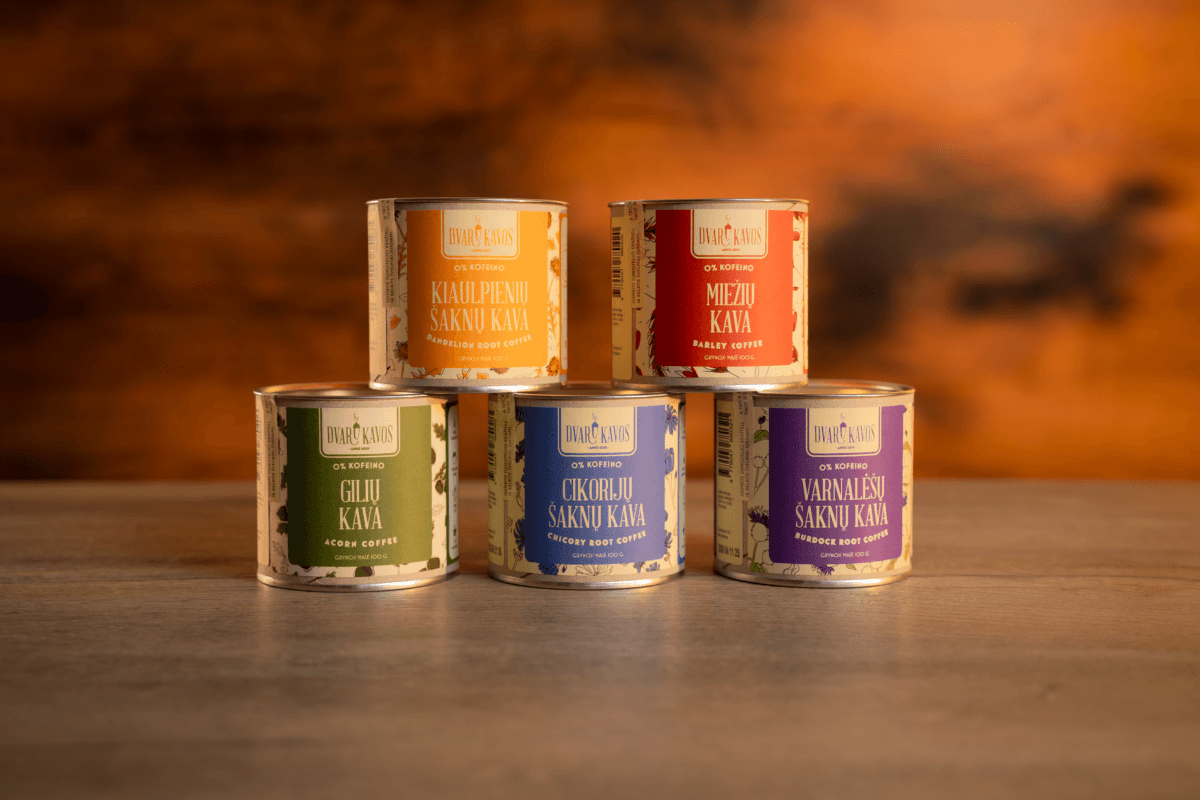As autumn draws to a close, for many people their daily cup of coffee is the only cure for lack of energy and low spirits. There is no shortage of debate in the press and scientific literature about its effects, benefits, side effects, addiction and… caffeine fatigue.
First, let’s look at the characteristics of caffeine consumption, whether in the form of regular coffee beans, black or green tea, energy or soft drinks, or dark chocolate. The stimulating effect of caffeine is undisputed, although many studies have come to controversial conclusions about the duration and effects of this stimulation.
The health benefits of coffee depend on caffeine, polyphenols – especially chlorogenic acids, the flavanoids catechins, caffeic acid and the diterpenes kahveol and kafestol. The caffeine content depends on the type of coffee, how it is prepared and, above all, how it is processed – whether it is ground coffee, whose stimulating caffeine effect is replaced over time by the inhibiting effect of theobromine, or soluble coffee, which is made only from the inner part of the bean, which is lower in caffeine and higher in theobromine.
Caffeine, the world’s most popular stimulant, reaches its highest concentration in the brain and blood after 30-40 minutes of drinking a cup. Half of the caffeine consumed by an adult is excreted in the urine within 3-6 hours. There is general agreement that caffeine stimulates the central nervous system but has no significant long-term effect on blood pressure (controversial as this may sound) and that the duration of its effects depends on a number of factors including age, weight, lifestyle and drinking habits.
It is agreed that around 280 mg of caffeine (2-3 espresso-sized cups) per day is a moderately safe level, with beneficial effects when consumed over a longer period of time:
- Coffee’s antioxidant and anti-inflammatory properties reduce mutant cell changes and the likelihood of chronic disease, and may inhibit the growth of certain cancer cells;
- Hepatoprotective and anti-fibrotic effects may prevent fatty liver and certain liver diseases;
- Caffeine may increase muscle contraction force and increase an athlete’s pain threshold or perceived exertion, which may lead to prolonged high-intensity exercise;
- Brain-activating properties may lead to a reduced risk of depression.

If you consume more than 480 mg (4-5 cups) of caffeine per day, or if your body is more sensitive to caffeine, there is a high chance that caffeine will have adverse effects on your body:
- the constant activation of adrenaline and cortisol production leads to nervousness and emotional irritability, stomach pain and involuntary muscle tremors;
- increased heart rate can lead to insomnia, shallower and shorter sleep stages, affecting the body’s insulin sensitivity;
- drinking more than 8 cups of coffee a day promotes arrhythmia and increases the risk of atherosclerosis and stroke;
- coffee oil, cafestol and kahveol are known to increase blood cholesterol levels, but filtering coffee significantly reduces this effect;
- It should be noted that the withdrawal period for caffeine is longer during pregnancy and shorter for smokers;
- the strongest opinion concerns drinking coffee on an empty stomach – the increased acidity of the stomach can make gastric juices more likely to erode the stomach walls; gastritis, reflux, pancreatitis and ulcers may develop.
The contradictory properties of coffee, which vary according to the amount consumed and the body’s personal characteristics:
- Studies show that both caffeinated and decaffeinated coffee support the vitality and resistance of pancreatic cells, which may reduce the risk of type 2 diabetes and neurodegenerative diseases (Alzheimer’s, Parkinson’s). However, for those who already have diabetes, a cup of coffee can cause an excessive rise in blood sugar levels, reducing insulin sensitivity and complicating the body’s response;
- Studies show a protective effect on the cardiovascular system, but the higher levels of kahveol and kafestol in unfiltered coffee significantly increase the accumulation of bad cholesterol;
- moderate consumption of caffeinated drinks stimulates intestinal peristalsis, but excessive caffeine intake can cause constipation;
- The catechins in coffee stimulate fat breakdown and increase energy intake, and therefore have a preventive effect on weight control and obesity, but excessive amounts of catechins have adverse effects that can lead to liver damage;
- Not all studies suggest a possible link between caffeine consumption and reduced bone mineral density or increased risk of fractures.
As if this contradiction of positive and negative qualities were not enough, caffeine is addictive, with all the withdrawal symptoms of fatigue, irritability, headaches and even depression. Continuous heavy coffee consumption inevitably raises the caffeine tolerance threshold, and there often comes a time when coffee “stops working”. Once that delicious cup is gone, you don’t feel as invigorated, you feel tired and sluggish, you can’t even enjoy sweets, and you think it’s time to take a break from coffee. But how?
To avoid extreme stress on the body, nutritionists advise cutting your daily caffeine intake in half until the worst of the withdrawal symptoms have passed. Two helpers are strong willpower (especially in the first few days, until the hardest part of withdrawal is over) and… yes, of course, caffeine-free alternatives to coffee – our delicious Lithuanian coffees.
In short and without repetition, as we have already gone into great detail in previous stories about the specific roots and depths of most of them, there are no negative effects on the body from any coffee alternative, and the benefits are immeasurable and scientifically proven:
- The taste buds have a new way of “recognising and understanding” new flavours;
- The body is no longer burdened with conflicting substances;
- The heart remains calm;
- The liver gets a chance to “take a break” and even replenish itself with detoxifying substances.
The intestinal microbiota is delighted by the rich accumulation of inulin, minerals and vitamins in the roots, the probable regulation of gastric acidity and blood sugar levels, and the tannins and antioxidants do their ‘good work’ of protecting the cells as well as the coffee, in short, the body is at peace.

But let’s face it, whatever the health benefits, the greatest happiness comes from preserving the sacred aromatic ritual of the day and the peace of mind that comes from remembering that love for others begins with [delicious] love for ourselves.
Avoiding caffeine and opting for decaffeinated drinks is worth keeping the same ‘coffee drinking’ schedule, the same surroundings, the same treats as usual – it will be psychologically easier, and it’s worth not dismissing the possible placebo effect, which is increasingly recognised as a factor that can have a real physical effect.
The preparation of root coffees can be identical to that of regular beans, from a simple brew in a cup to a Chemex or French press. Burdock, dandelion, acorn and chicory coffees can also be made using semi-automatic, non-grinding coffee machines. The preparation process is an important part of the ritual, and these coffees make it possible not to lose this pleasure.

And then there are the different natural flavours of the coffees, which will reward you with the joy of discovering something new or forgotten – from the bitter earthiness of burdock to the cocoa notes of dandelion or the deep, deep depths of caramel with walnuts…
We often hear from our customers that our coffees work well as a “second or third cup of coffee” of the day, so we say feel free to experiment, because it is possible to achieve the healthy balance you are looking for without sacrificing the idyll of sipping.
We wish you health, rest and routine-busting dietary changes!
References:
Critical reviews in food science and nutrition
Osteoporosis International
Nutrition research reviews
Pharmaceuticals
© The copying and distribution of any visual or textual information found on the website www.dvarokavos.lt is strictly prohibited without the consent of MB ‘Užupių manufaktūra’. If you have any questions regarding the use of the information on this website, please contact info@dvarokavos.lt.

